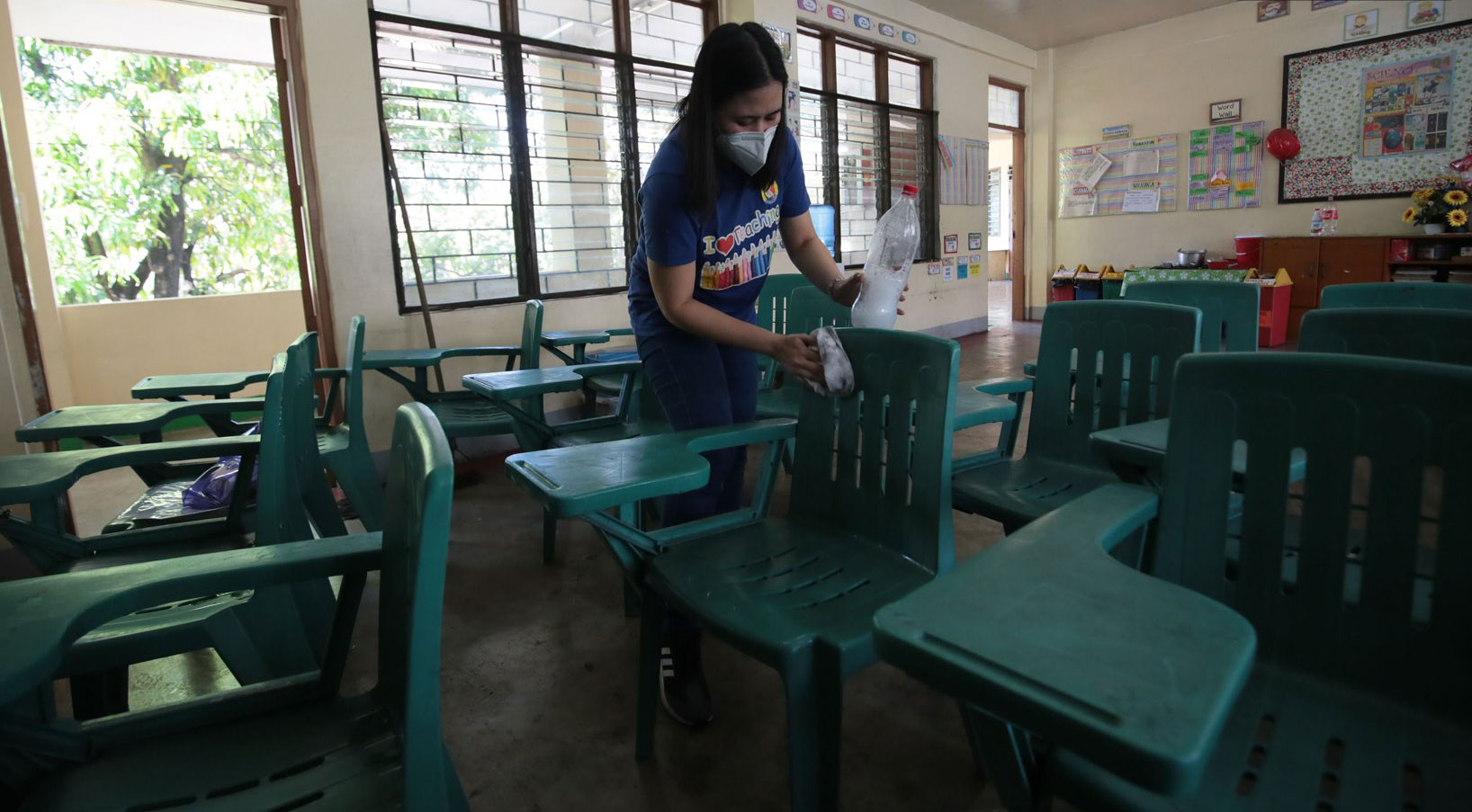Group urges building of climate-resilient classrooms

A BUSINESS group on Wednesday said the Philippines should prioritize building climate-resilient classrooms and exploring remote learning practices, following a Department of Education (DepEd) decision to bring back the pandemic-disrupted June-to-March academic calendar.
The decision, which was announced on Tuesday, should not be seen as a “stopgap measure to address the underlying issues that make the existing school calendar unbearable,” the Philippine Business for Education (PBED) said in a statement.
“To safeguard our children, we need to make sure that classrooms can withstand extreme weather conditions and have transportation support available.”
PBED said DepED needs to be firm with its decision this time so as to avoid learning disruptions.
“Our students need a fixed schedule.”
A DepEd order dated Feb. 19 scheduled the start of classes under school year 2024 to 2025 for July 29, cutting the end for the current school year by two weeks to May 31 from June 21 as it gradually reverts to the old academic calendar.
Classes for the same school year should end on May 16, 2025, according to the order.
DepEd said the return to the old calendar will be “gradual” to avoid major disruptions to the vacations of students and education workers.
PBED said the DepEd should also explore alternatives to face-to-face classes in the event of class suspensions.
“Now is the time for DepEd to institutionalize good practices from remote learning experience, whether through assigned modules, or online or broadcast classes.”
It should also find ways to offset the days lost due to national holidays and class suspensions, the business group said.
The DepEd decision “was a result of the clamor of teachers, students, parents and education support personnel,” House Deputy Minority leader and ACT Teachers party-list Rep. France Castro said in a statement.
The lawmaker noted that the El Niño weather pattern is now in its mature phase and the heat in classrooms is increasing.
“We hope that mitigating measures to reduce the inconvenience of teachers and students are now in place so that classrooms are still conducive to learning.”
“We urge the DepEd to ensure the continuous gradual return to the old school calendar in the next school years and that the proportional vacation pay of teachers would not be reduced,” she added.
In her second basic education report conducted last month, DepEd Secretary Sara Duterte-Carpio said her department will prioritize funding for schools that have makeshift or temporary classrooms and those in calamity-stricken areas with many unfunded and damaged buildings.
The agency will also focus on the construction of medium-rise school buildings in priority areas “with high classroom shortage but with limited buildable space,” she added.
The agency received P17 billion under the 2024 national budget for the construction of new school buildings, up from P15.6 billion last year.
ACT has been urging DepEd to allocate at least P100 billion every year for classroom construction to bring class sizes down to a manageable level. — Kyle Aristophere T. Atienza



